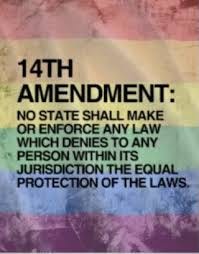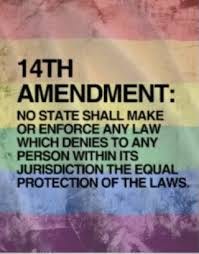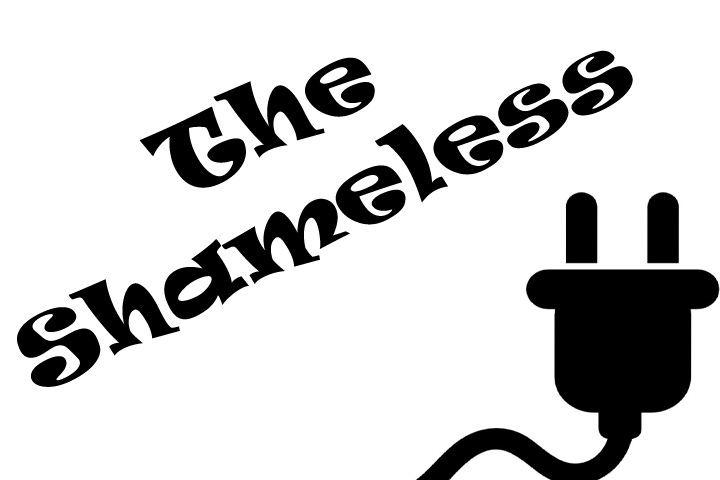The 14th Amendment: A Short History
Also, how the right wing is misusing/misinterpreting this amendment for their own goals.
Issue #362 Government July 13, 2023
The 14th Amendment, its meaning, and its ramifications have been in the news lately, primarily because it is being used by the right wing to roll back rights for groups of Americans they don’t like.
Just as how Republicans love to use and misuse selected quotes from Rev. Dr. Martin Luther King Jr., they are also using and misusing only selected parts of the 14th Amendment to justify their anti-democratic initiatives.
The 14th Amendment to the United States Constitution has had a profound impact on American society. Passed by Congress on June 13, 1866, and ratified on July 9, 1868, it was one of the Reconstruction Amendments, enacted following the Civil War.
There are five primary clauses in the 14th Amendment, but three of those clauses have had the most impact historically:
Citizenship Clause: This clause grants citizenship to "all persons born or naturalized in the United States," which extended citizenship to formerly enslaved people.
Due Process Clause: This clause prevents states from denying any person "life, liberty or property, without due process of law." This means that the state must respect all legal rights owed to a person according to the law of the land.
Equal Protection Clause: This clause prevents states from denying "to any person within its jurisdiction the equal protection of the laws." It ensures that all citizens are treated equally under the law.
“We Are Speaking,” which we publish seven days a week, is financially supported by our paid subscribers and by your investments in the products and services offered by the Global Creative Community Branding and Marketing Academy. Please make sure to view and act on the important information at the end of this article to help support and grow “We Are Speaking.” Thank you!
Historical Background of the 14th Amendment
The 14th Amendment was passed as a response to the abolition of slavery after the Civil War. The Southern states enacted "Black Codes" to restrict the rights of newly freed slaves, so in order to counter these racist and white supremacist schemes, the 14th Amendment was proposed to secure rights for all citizens, specifically, the former slaves. (Women and other non-white people were not considered full citizens until decades later.)
The 14th Amendment granted citizenship to "all persons born or naturalized in the United States," which included the formerly enslaved people. It also forbids states from denying any person "life, liberty or property, without due process of law" or to "deny to any person within its jurisdiction the equal protection of the laws."
The 14th Amendment was bitterly contested, particularly by the states of the defeated Confederacy, which were forced to ratify it in order to regain representation in Congress.
Former president Donald Trump and current Republican presidential candidates Ron DeSantis and Vivek Ramaswamy have promised to end the "birthright citizenship" provision of the 14th Amendment, primarily because they believe that brown migrants are swarming to the United States to have their babies born here and granted automatic citizenship.
Ironically, Vivek Ramaswamy was himself born in America to immigrant parents from India. (Birthright citizenship for me but not for thee?)
Of course, these people forget to mention or do not realize that any change to the 14th Amendment would be a long and grueling process:
Congress must call a convention for proposing amendments upon application of the legislatures of two-thirds of the states (i.e., 34 of 50 states).
Amendments proposed by a convention become valid only when ratified by the legislatures of, or conventions in, three-fourths of the states (i.e., 38 of 50 states).
The Significance of the 14th Amendment
First, the 14th Amendment cemented the citizenship status of (almost) all individuals born or naturalized in the U.S., regardless of their race or previous condition of servitude.
Second, the 14h Amendment introduced the concept of "equal protection under the law," which has been used as the basis for many landmark Supreme Court decisions, including Brown v. Board of Education (1954), which ended racial segregation in schools, and Obergefell v. Hodges (2015), which granted same-sex couples the right to marry.
Interestingly, the Supreme Court of the United States (SCOTUS) recently used the "Equal Protection Clause" to eliminate race-based affirmative action initiatives in higher education.
The 14th Amendment has been cited in more litigation than any other amendment. It served as the foundation for landmark civil rights cases, and its principles have been applied to numerous issues beyond those it was initially designed to address.
The 14th Amendment has been instrumental in the progression of civil rights, ensuring that all citizens are treated equally under the law, but we must also ensure that it is not conversely used to strip rights away from the American public.
Let us know your thoughts about what new information you learned in the comments or in the Substack Notes feature.
You can always leave any questions in the comments or email us.
You can also receive up to six months of a paid subscription for referring people to us with the Share Button or the Refer Button.
This article is free to access for 1 week after publication. Please consider becoming a paid subscriber for $5/month or less to access all of the articles and other benefits.
This is your chance to support everything Keith and Pam do. We appreciate you!
Purchase and download your copy of the “Branding And Marketing For The Rest Of Us” eBook for Independent Authors and Creative and Solo Professionals and other valuable eBooks.
Enroll in one of the 6-course bundles designed especially for you: “Author and Book Marketing” and/or “Essential Creative Marketing.”
Purchase your copies of “Detroit Stories Quarterly” issues.
Purchase your copies of “The Mayonnaise Murders” Parts 1, 2, and 3
What else do Keith and Pam do?
Where else can you find us?
Click the link below to learn everything you need to know and review everything we offer for independent writers and creative and solo professionals.









